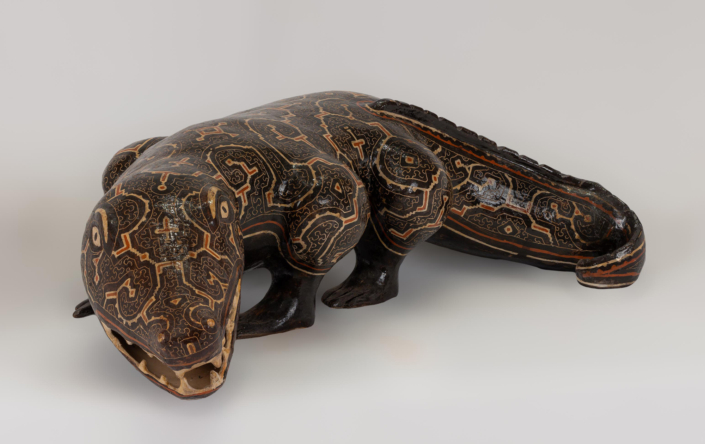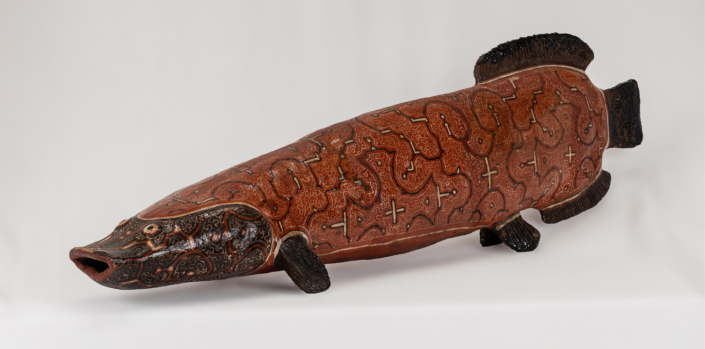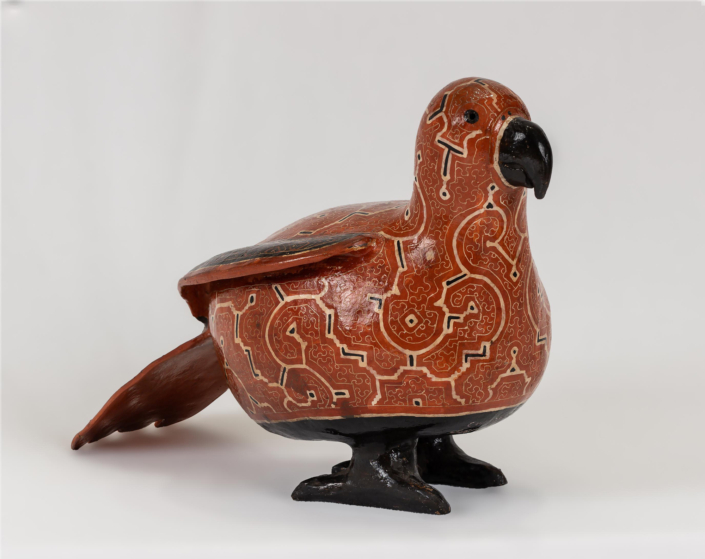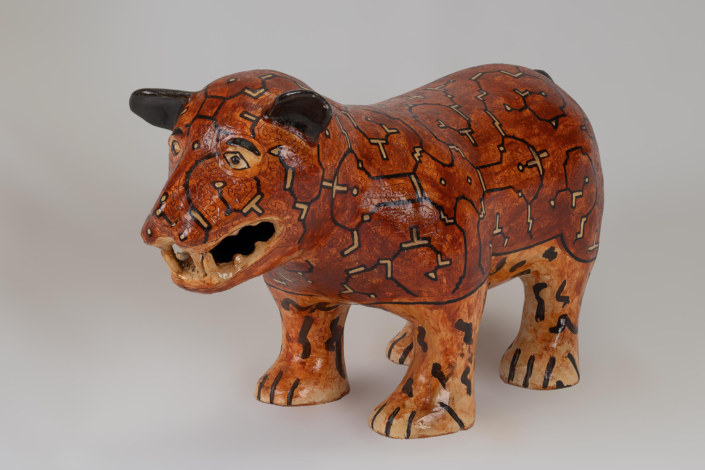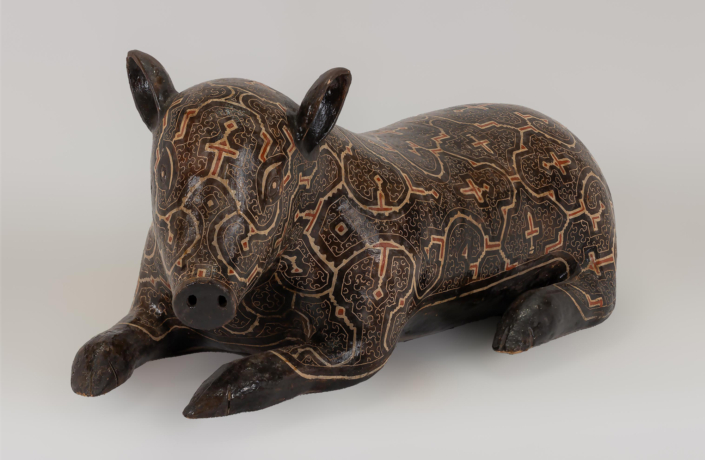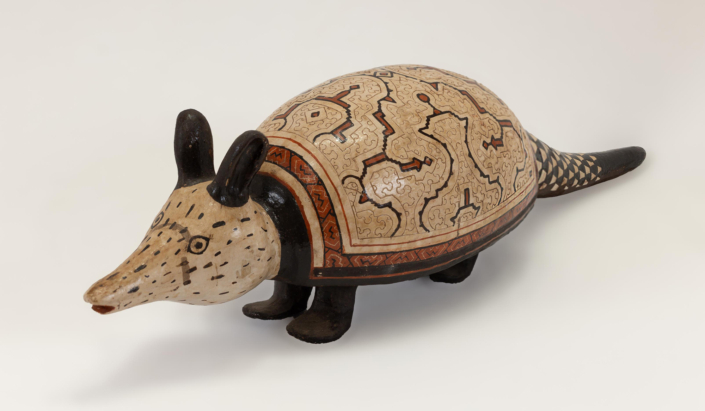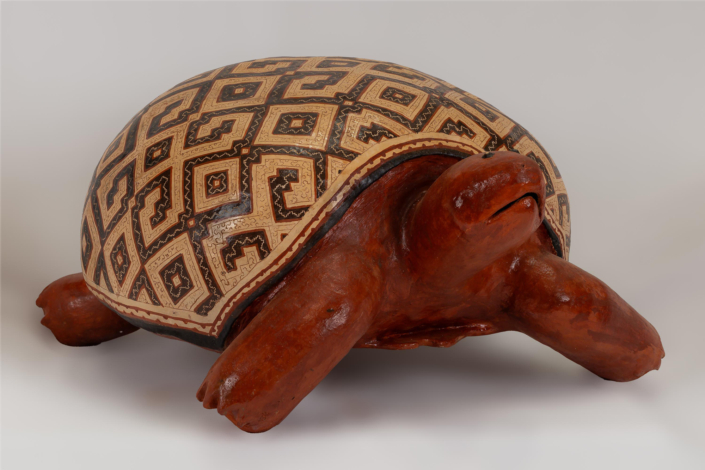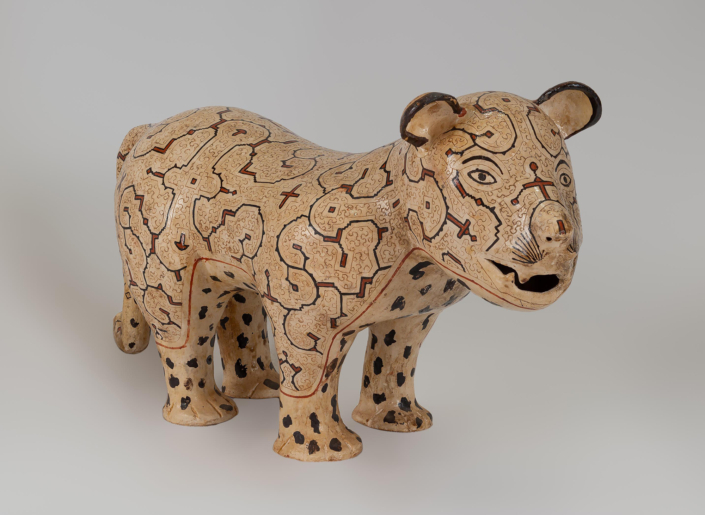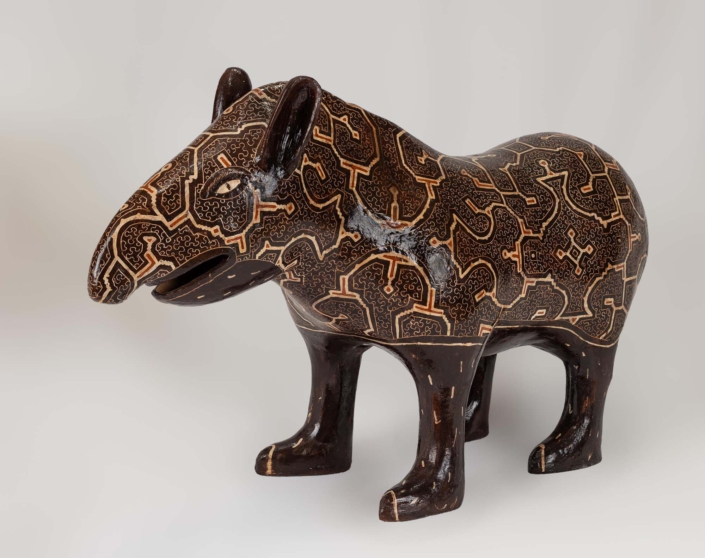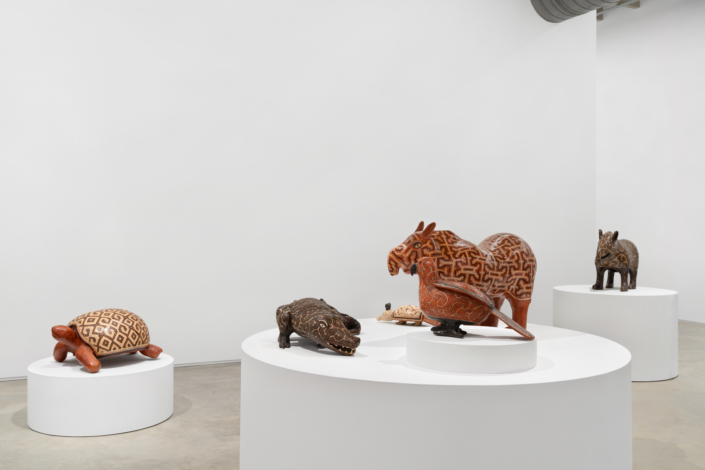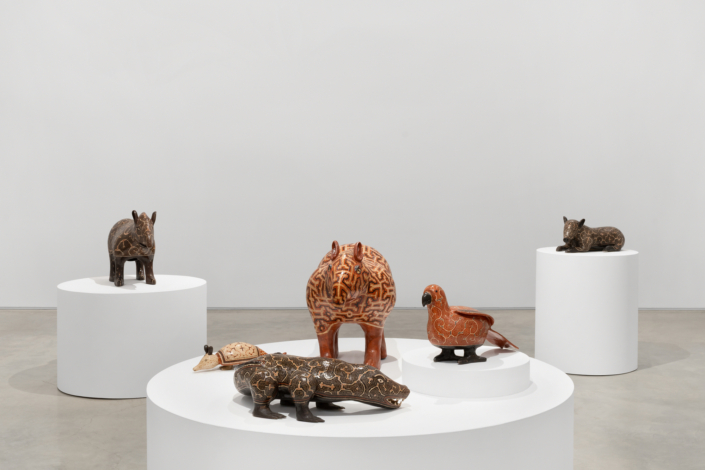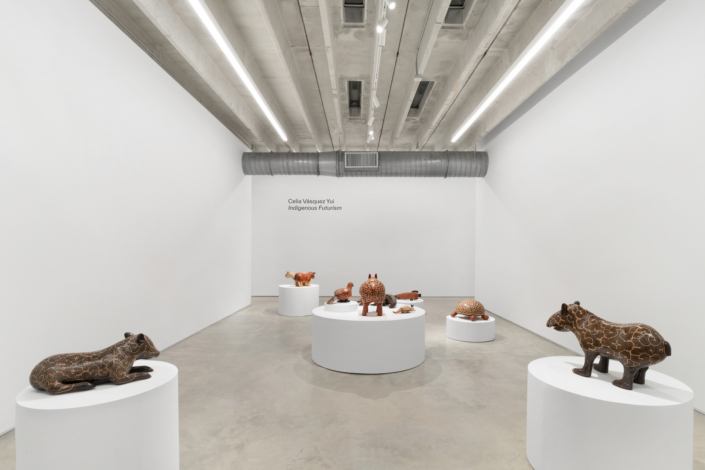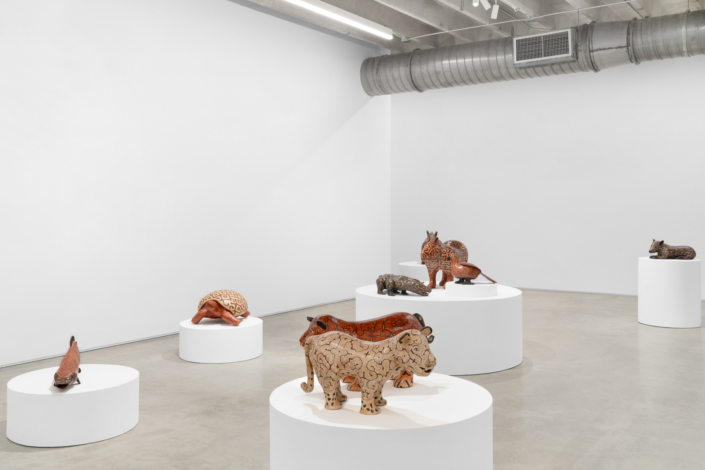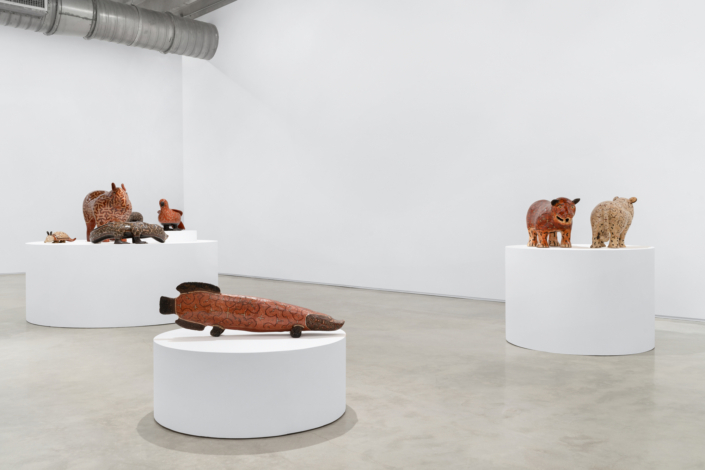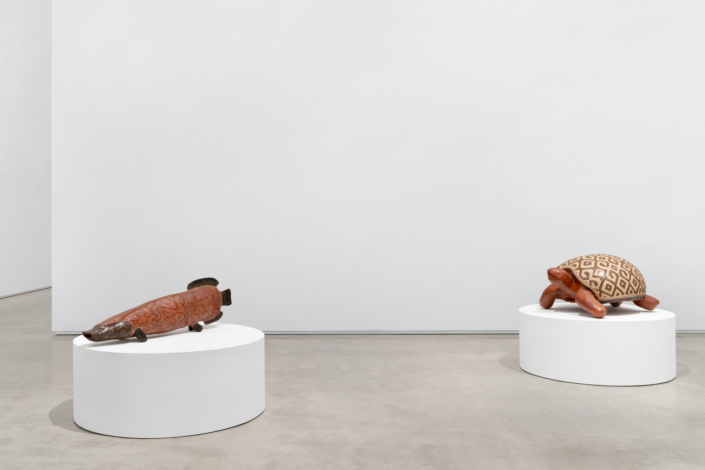Indigenous Futurism
Mindy Solomon is pleased to present Indigenous Futurism, the work of Shipibo tribe member Cecilia Vásquez Yui. The Shipibo people, also known as the Shipibo-Conibo, are an indigenous group primarily residing along the Ucayali River in the Amazon rainforest of Peru. They are one of the largest indigenous groups in the Peruvian Amazon, with an estimated population of over 20,000. Formerly two separate groups, they merged into a single tribe through intermarriage and communal rituals. The Shipibo-Conibo speak the Shipibo language, which is recognized as an indigenous language in Peru. Supported by the Shipibo Cultural Center in Harlem, New York, whose mission is to preserve and protect the Shipibo community, Vásquez Yui merges centuries-old traditions with a contemporary narrative. The Shipibo-Conibo people have been working with polychrome earthenware pottery for the last 1200 years.
Vásquez Yui’s ceramic works have a distinctive pattern that is indicative of Shipibo mark-making. Derived from the concept known as kené or quene designs, it is an ancient and vibrant art form deeply embedded in the culture and spirituality of the Shipibo-Konibo-Xetebo people of the Peruvian Amazon. These intricate geometric patterns reflect their worldview, connecting them to nature, their cosmology, ancestral wisdom, and spiritual beliefs.
Vásquez Yui’s exhibition will feature an installation of objects that create an immersive experience for the viewer. Surrounded by these “future artifacts”, the exhibition will emphasize the necessity to understand and embrace the opportunity to preserve the future of this unique cultural community.
The exhibition is a collaboration with The Shipibo-Conibo Center, NY.
About Celia Vásquez Yui
Celia Vásquez Yui is an artist, Indigenous rights activist, and political representative of the Shipibo-Conibo People of Peru. Born in the Amazonian city of Pucallpa in 1960, she began creating alongside her mother, an eminent ceramicist and descendant of the polychrome horizon cultures, whose archeological record throughout the Amazon dates back thousands of years. Balancing a cultural imperative for inventiveness with the constraints of traditional style, Celia Vásquez Yui has distinguished her practice through astonishing creative innovations, exploring and expanding the zoomorphic features of the style, and beyond. Not only does Celia Vásquez Yui work alongside her daughter, Diana Ruiz Vásquez—an intergenerational collaboration that adds another expansive dimension to the work through which two bodies and two minds merge to finish each other’s designs—but she also has the custom to cut off a lock of hair from the head of her youngest apprentice in order to make from scratch the paintbrushes of different sizes she uses to paint the designs. This way, her kené pathways channel into a pledge for the future too.
Solo exhibitions of her work have been held at Salon 94, New York; C L E A R I N G, NY; the Herbert F. Johnson Museum of Art at Cornell University, Ithaca, Proyecto Amil, Lima, Peru.
Her work has been included in group exhibitions at the Musée du quai Branly, Paris; Museum of Contemporary Art, Lima; Haus der Kulturen der Welt, Berlin; Sainsbury Centre for Visual Arts, Norwich, UK; Outsider Art Fair, New York; and the Inca Garcilaso Cultural Center, Lima. Celia Vásquez Yui’s work belongs to the collections of the Art Institute of Chicago, Chicago. Ruth and Elmer Wellin Museum of Art at Hamilton College, Clinton; Bowdoin College Museum of Art, Brunswick; and Herbert F. Johnson Museum of Art at Cornell University, Ithaca.

